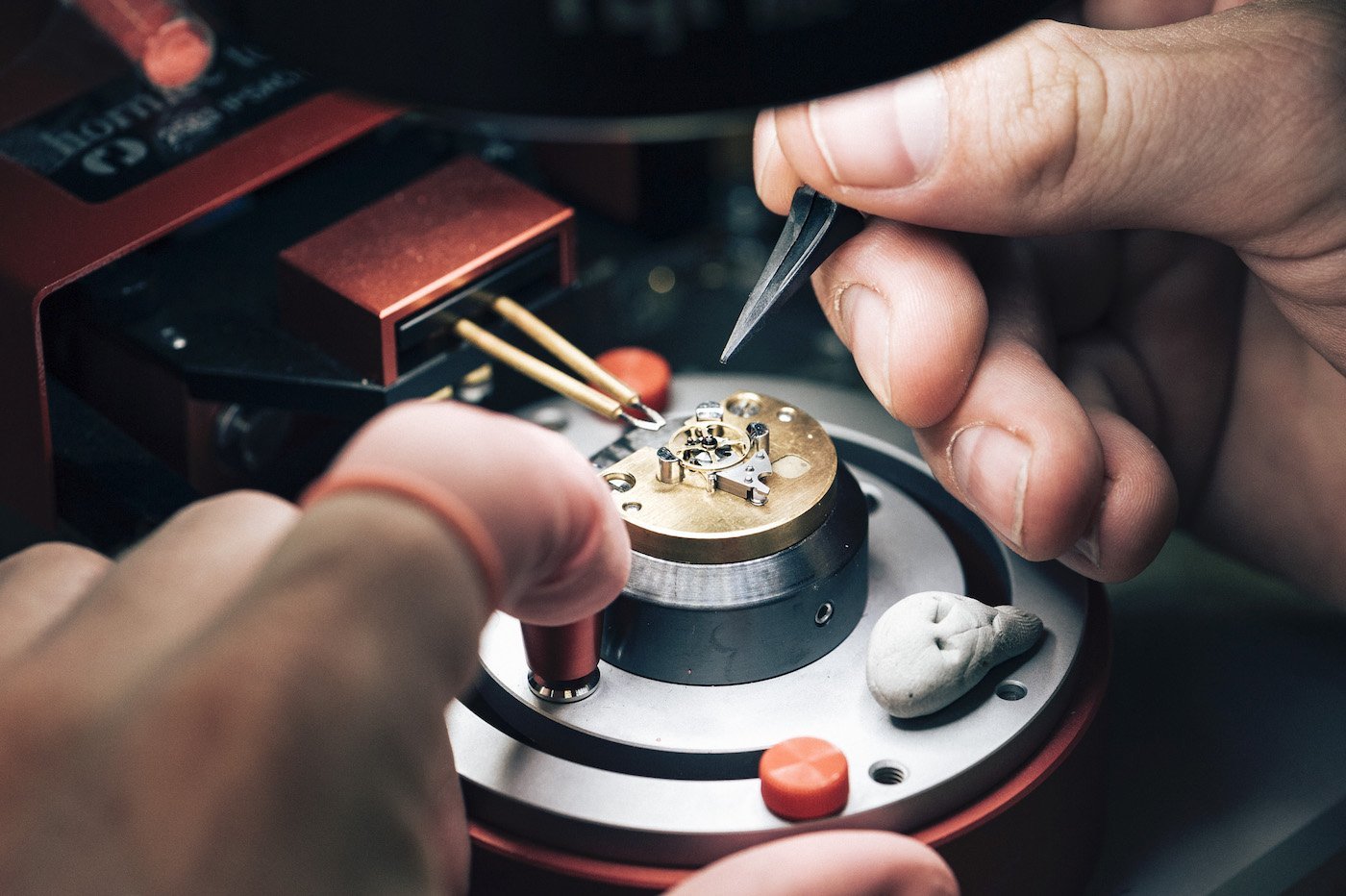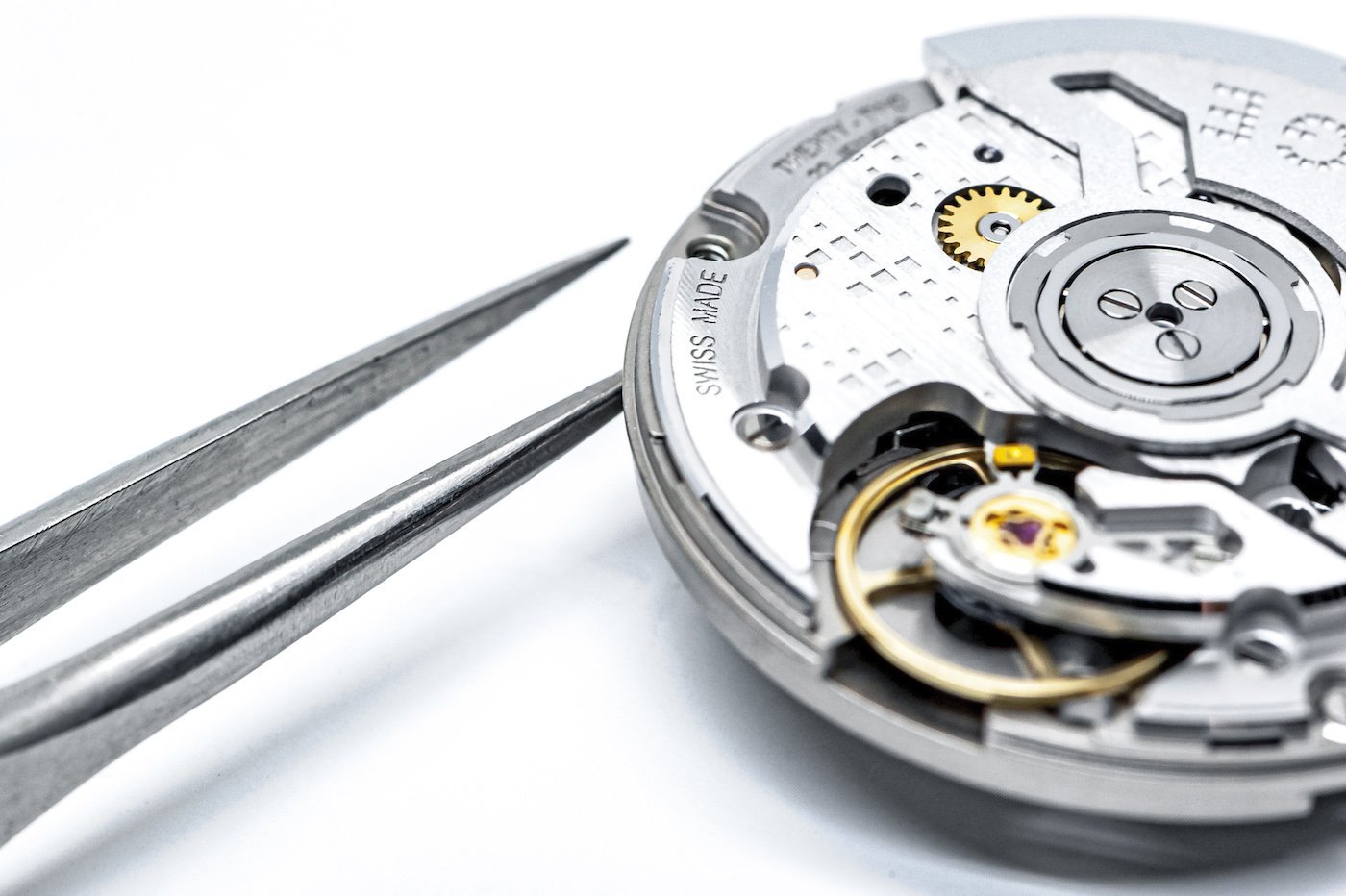ndreas Felsl and Jonas Nydegger have long been active both on the supply side of the watch industry (via the K1 calibre) and on the product side (via the brand Horage, which recently launched a tourbillon model at CHF 7,490). In a context troubled by the pandemic, they explain that they are now looking to “help brands to test the waters on turnkey movement development.”
This is the raison d’être of a new R&D platform called THE Plus. “Watchmakers need to be increasingly agile and adopt a business model that combines low financial development risk and lean inventories,” says Andreas Felsl.
“Our System-K core components toolkit was developed over a decade of movement development. The idea of functional modularity, combined with the intelligent use of core components from this toolkit, allows us to cut time to market drastically for new movement projects at an industrial level. Even specialty calibre projects like a tourbillon could be made in-housed and completely re-engineered in a record time of less than 6 months.” THE Plus claims to be capable of producing up to 100,000 movements per year within a host brand.
-

- Andreas Felsl
“More than ever, watchmakers need an operating model that combines low inventory, high innovation and flexibility.”

Setting up a movement division
Through their K2 project, the team is not only selling calibres as such, but also the provision of intellectual property, thus enabling brands to establish their own internal production line, as Felsl states: “Today, a modern watch brand that wants to sell in the CHF 2,000-4,000 retail range must offer something different than a standard calibre. But if a brand wants to develop a movement industrially from scratch, it will take at least seven years, at a total cost of CHF 8 to 20 million. This is the equation we are tackling with THE Plus.”
-

- Jonas Nydegger
“If a brand wants to develop a movement industrially from scratch, it will take at least seven years, at a total cost of CHF 8 to 20 million. This is the equation we are tackling with THE Plus.”
Their program comprises proposing brand partners to set up a movement division over a period of three to five years. “We can’t compete on production volumes, but we can help brands become more independent and innovative at acceptable unit cost,” says Felsl. “We help them to become a manufacturer of movements to serve the specific needs of their brand.”
Simply said, K2 aims at helping to “break the ice” on the development of a brand’s movement division. For participating brands, the K2 micro-rotor movement price starts at CHF 550. “The flexibility within its modular architecture can be optimised to accommodate additional modules and bespoke decoration, should brands look to differentiate themselves further.”
-

- The 38 functional variations of the K2 modular movement (source: THE Plus)
A participation in the K2 project enables brands to access additional hosted manufacturing services. “It’s like investing in your own movement, but with a known result and an already operational infrastructure,” explains Felsl. “The risk is therefore low, as the heavy R&D costs have already been borne by Horage and THE Plus over the last 12 years via the K1, Tourbillon and K2 movements.”
“The heavy R&D costs have already been borne by us over the last 12 years through the K1, Tourbillon and K2 movements.”

“Uncertainty is a poison”
The idea of “hosted manufacturing” was born in the midst of the current pandemic, which has completely reshuffled the cards of watchmaking production. “In the current situation, we need to think about new business models to keep the industry alive and innovative,” says the entrepreneur. “Consumer perceptions of brand values have already shifted. To keep the pace, brands will need to deliver innovative products.”
The idea of “hosted manufacturing” was born in the midst of the current pandemic, which has completely reshuffled the cards of watchmaking production.
With a growing consumer desire to know exactly what they have in their hands, Andreas Felsl is convinced that the future lies in original, yet industrially produced movements: “This situation does not necessarily benefit the biggest brands, which have heavily commoditised their movement portfolio in the past. On the other hand, smaller brands can no longer afford to invest as they used to. Our proposal uses a mix of internal and external expertise in order to acquire horological manufacturing credibility at a controlled cost.”
-

- The K2 movement
In fact, the watch industry is in a delicate position today: it must succeed in maintaining or even increasing innovation if it is to attract new customers in a stunted market, while at the same time mitigating sharply declining revenues.
“We are targeting existing brands that want to move away from standard to more elaborate in-house movements, and market this transition in a credible way,” says Andreas Felsl. “Uncertainty is a poison for any industry. We are proposing a way to put an end to this uncertainty and help the industry to become more authentic.”
























































